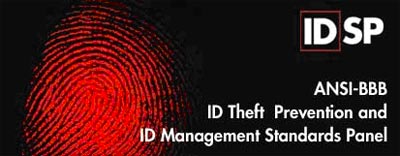The thing that immediately came to mind when I read the subject of Christian’s post was Mark Twain’s famous remark, upon learning about rumors of his own demise: “The report of my death is an exaggeration”.
Apparently the German press hasn’t been following my blog (I’m hurt but not totally shocked :-)) or Kim’s or JanRain’s or VeriSign’s or Ping Identity’s or Andy’s or Dick’s or David’s or Drummond’s or Scott’s or Paul’s or so many others where we’re all talking about the valuable ways that Information Cards and OpenID work well together. And there’s more than just talk. For instance, the OpenID providers LinkSafe.name, MyOpenID.com, PIP.VeriSignLabs.com, and SignOn.com all enable account creation and login with Information Cards. Is this good for OpenID? Yes! Is it good for CardSpace (and other Identity Selectors)? Yes!
But lest anyone has the perception that Microsoft’s participation in OpenID somehow lessened our commitment to CardSpace, I’ll respond plainly: That is simply not true. I work in the corridors where the CardSpace team is actively building the next version (which incorporates lots of the great feedback we’ve received from users and partners on our present versions) and down the hall from where our server product is being built that will make it easy to issue and accept Information Cards. I can honestly report that both teams are excited, executing on their mission, and moving full speed ahead!
In answer to Christian’s question “Why didn’t Microsoft explain the whole picture in the moment of releasing such news?”, I’ll respond pointing out that the news of February 7th was about Microsoft and others joining the OpenID Foundation board — not about CardSpace, and we were comfortable with that. We are confident enough of the value that CardSpace brings to the table to also openly embrace other identity technologies where they make sense, without feeling that the existence of one diminishes the other. We are confident that others (including many of the leaders in the OpenID community) share this view.
So to our great partners like Christian who are out there rocking, building innovative identity solutions that are part of the “Identity Big Bang” with Information Cards and CardSpace I say this: Congratulations on your fantastic work! We’re fully behind you!
And to our great partners who are also helping create the “Identity Big Bang” by employing OpenID where it makes sense: We salute you too!
The Internet Identity Layer is still very much a work in progress. I’m thrilled to be part of making it happen and to be in a community that is collaborating and building upon one another’s work. And if I were on the outside watching, I certainly wouldn’t be holding my breath wondering if one of these identity technologies is going to “kill” the other one — especially when the truth is that they’re both stronger because of the other.
 I’d like to extend congratulations to my colleagues from the Higgins Project for their Higgins 1.0 release today. This is a significant milestone in the development and deployment of interoperable identity software that lets people use their Information Cards on any platform or system.
I’d like to extend congratulations to my colleagues from the Higgins Project for their Higgins 1.0 release today. This is a significant milestone in the development and deployment of interoperable identity software that lets people use their Information Cards on any platform or system.





